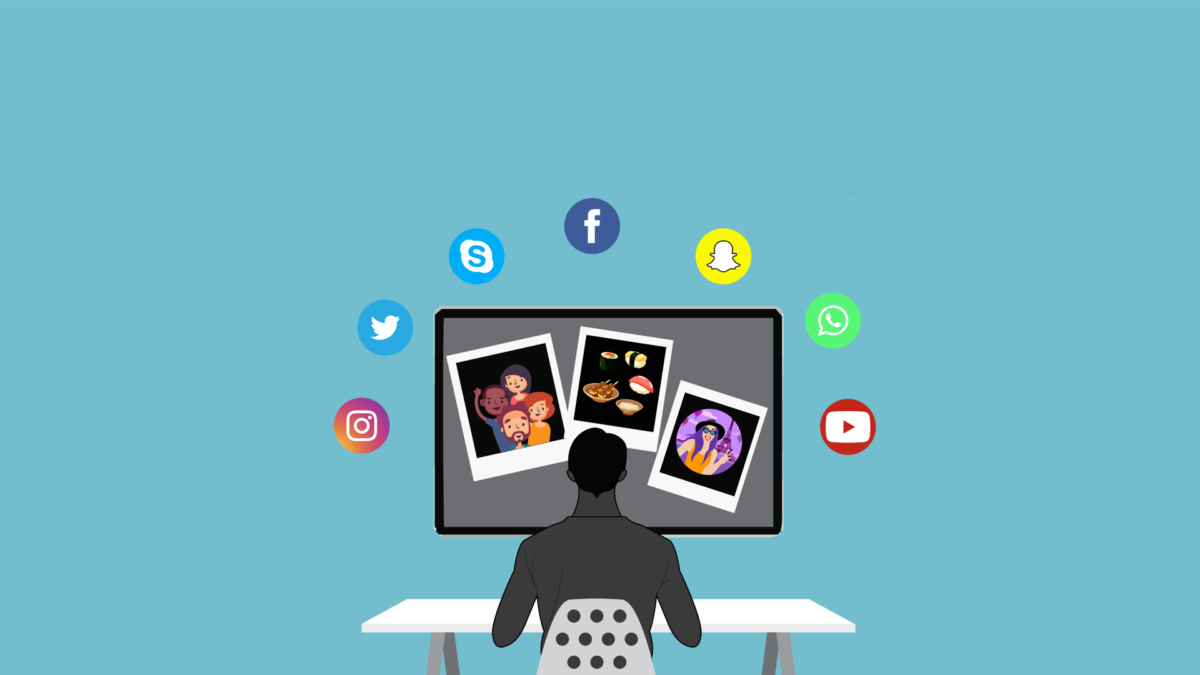IT’S NOT WHAT IT LOOKS LIKE

CRAFT YOUR NUKE (CV) BETTER
October 1, 2019
A Critical Review of Declining Interest Rate in Bangladesh
December 24, 2019IT'S NOT WHAT IT LOOKS LIKE
It’s 9 PM, you just got home, as you take off your shoes and socks you quickly recap your daily struggle, the unempathetic academics, the unbearable commute in an uninhabitable city, squeezing out the last bit of mental energy on your ungrateful student whose parents are late with payments every month. Finally, you sit or lie down comfortably on your bed and take out your phone, you visit social media and there it is, everybody had a much better day than yours. All of them were in places like Gulshan, Banani, half of them were in Cafes like South Start or The Back. Half of them went to either expensive Asian restaurants or were out eating steaks worth half a month’s salary for you. Initially, you feel unfortunate, poor. Then the deeper realizations start to set in, these people are going to these places with friends, or they have some sort of cool internships. It hits you, “I don’t have any friends, I’m doing nothing with life”
If you’re an average university student in Bangladesh or even someone who’s graduated recently, you probably relate to this on a fundamental level. And you’re not alone, you’re part of a global phenomenon. A recent article from Aljazeera about a Canadian study about the link between depression and social media use in teenagers found just that. It studied 3800 individuals from 7-10th grade. If it weren’t already obvious, a strong correlation between social media use and depression and even suicidal thoughts would be found. But that was not the most important finding from this study. The study looked at and analysed 3 kinds of digital screen time. The three different kinds of screen time were Television, Social Media and Video Games. Television has a moderate correlation to depression; social media has a high correlation to depression, but video games do not correlate with depression. The researchers claim that this phenomenon is because video games nowadays are rarely played in isolation and even when they are, story-based games are the most encapsulating form of “escape from reality” and its expectations for a teenager or young adult.
So, it is a very real and dangerous problem, it is eating away at our minds, self-esteem and mental health in general. But what can we do about it? Is there a train of thought we can just hitch a ride on and escape this self-inflicted torture? Can we escape such an unforgiving judgment of ourselves? The answer may lie in an ancient story about a person who was so self-involved and so full of love for himself, he died for it.
Narcissus was a Greek Mythological hunter. He was an exceptionally attractive man. One day when he was out in the forest, a nymph named Echo fell in love with him. Echo tried to confess her love, but he rejected her advances. Eventually, he came to pass his reflection in a body of water. Upon seeing his reflection, he fell in love with it. He got closer and closer until he fell into the water and died.
We all know a modern-day Narcissus, and yes, if you were wondering, this is where the word narcissist comes from. But there’s more to this story as Marshall McLuhan brings to light in his book “Understanding Media”. He argues that Narcissus being excessively obsessed with himself was only half the problem. An equally essential part of the issue was that he couldn’t detach a mere reflection from an actual person. He could not conceive that the reflection was only and only a reflection of himself and could never be the whole person. He tried to form the image of the whole person from one single extension of the person through another media, (in this case the reflection on the water) - sound familiar? According to McLuhan, we’re victims of the Subliminal State of Narcissus Trance. We mistake the pictures on social media to be a proper representation of the entire person. When in truth, they have only cherry-picked the best part of themselves to display in this medium of extension, social media. Most people we are envious of, probably have lives just as mediocre or even worse than our own.
It is easy to mistake a picture for a person being better off. Studies show it happens in the very first few moments of encountering the content. We all learned not to judge a book by its cover, it’s about time we put that to good use in a modern context.
Contributor:
Faisal Arefin
Department of OSL
Faculty of Business Studies
University of Dhaka
Editor:
Fouzia Fariha
Co-Editor (Blog) & Head of Public Relations
Voice of Business




